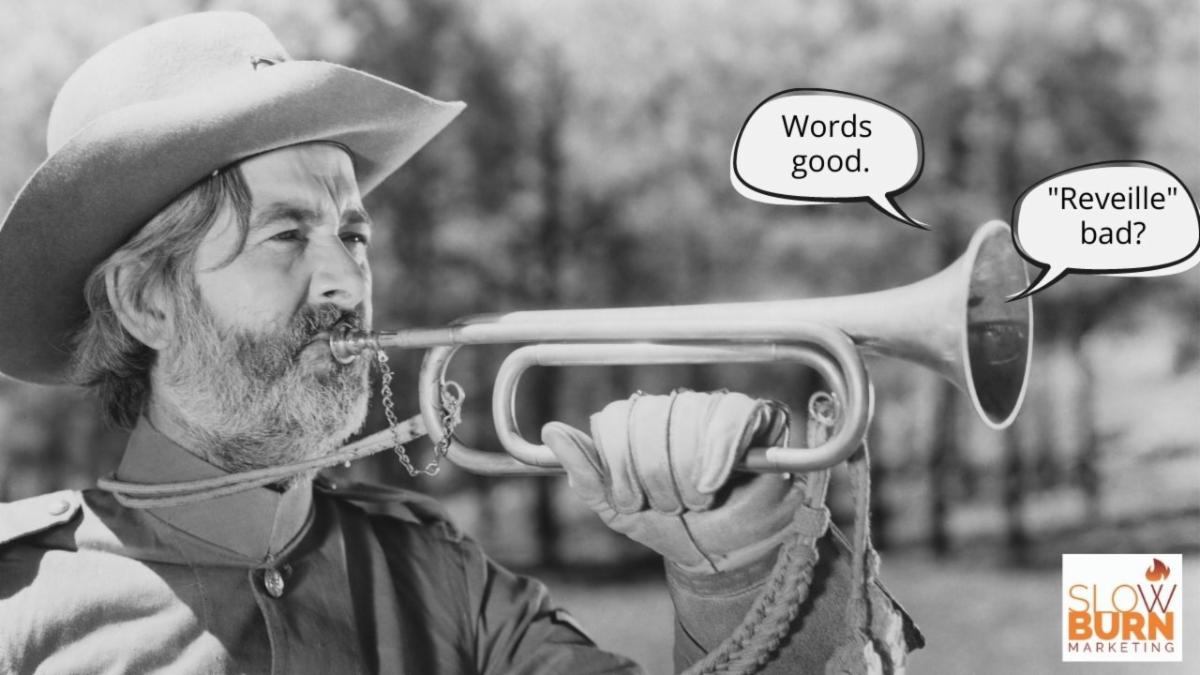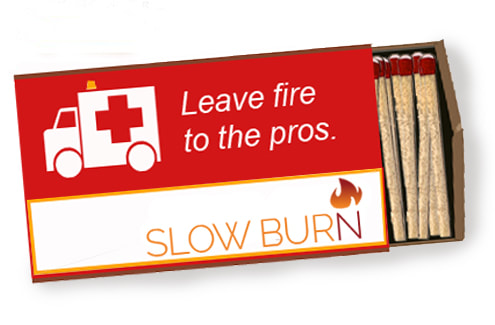|
In the gray, pre-dawn here on Gulf coast, I’ve taken to my chair to scribe a rant just for you.
And then, change. Abrupt. I was putting pen to Moleskine knock-off and sipping the remains of yesterday’s French press coffee reheated (a glamorous life or what?) when the morning quiet was choked awake by strangled notes of every military man’s favorite piece of music. Yes, we’re talking “Reveille.” It’s pronounced, “REV-ah-lee,” though that is clearly not what the letters spell for English speakers. Doesn’t it look more like it should be pronounced “Re-vile”? Nearby, we have is a military base. Each morning at 6am, “Reveille” sounds over the base PA speakers. We can hear it out here on the other side of the gate. And know that I don’t use the word “strangled” lightly. Maybe it sounds better and less reviled inside the gate. Out in the land those men and women are working to keep free, here outside the gate and inside the house, that song is a garbled mess of harsh sonority, a crush of cruel notes assembled for your waking displeasure. So, what’s in a word? What is the goodness of “Reveille”? Let’s start with the obvious. It’s French. For some, that’s reason enough to hate “Reveille.” And it seems that “Reveille” is indeed hated by military personnel, something in which Irving Berlin took inspiration. (More on that later.) “Hate” is a strong word. However, I was never in the military nor woken by “Reveille.” The closest I came to military-ish service was standing watch on ocean-going sailboats, and the word “hate” is usable for the moment any hour of the night when you’re woken from your warm bunk to put on cold, wet clothes and go stand out in driving ran and crashing waves for three hours as you move (one hopes) ever closer to your destination across the pond. But, as the French might say, Je digresse. The word “Reveille” originates from the Latin “vigilare” or “keep watch,” and the subsequent French verb, “revéiller,” to wake, which brings us the French command “revéillez!” or “wake up!” There are different military calls to wakefulness that are misnamed as “Reveille.” Both the British Army Cavalry and the Royal Horse Artillery (shouldn’t firing horses from cannons be considered inhumane?) both use a tune called “The Rouse,” which is often misidentified as “Reveille.” My personal fave is that the Scottish Regiments of the British Army sound bagpipes (which in the estimation of those who “hate” bagpipes should be sufficient to wake the dead under any circumstances) in a call entitled “The Rouse,” but set to the tune of “Hey, Johnny Cope, Are Ye Waking Yet?” I doubt the regiments play the upbeat, British music hall version “Hey, Johnny” that I’ve heard. But it is fun to imagine a bunch of cranky, uniformed Scots dancing a jig into their morning. But what if one has neither bugle and bugler nor (thank God) pipes and piper? If a military unit lacks the personnel or equipment to play “Reveille,” it falls to some poor bastard to walk around, sticking his head inside everyone’s tent shouting the word, “REVEILLE!” He does this until everyone wakes up and (presumably) douses him with hot coffee. (I have this not from personal experience but a wiki source, so if your personal military experience proves different, feel free to report me to the CO.) And now, the words. There are no official words, good or otherwise, to “Reveille.” There are some unofficial words heard in boys’ locker rooms. Then, there are some words commonly heard among the military folks who’ve learned to enjoy the “hated” morning call to wake. For example, the British Infantry likes to sing, “Get out of bed, get out of bed you lazy bastards.” The British infantry prefer instructions to “Scrub the bloody muck out of your eyes.” The Royal Navy is much kinder (kindness being something at which the military excels): “Wakey, wakey, lash up and stow!” The common US words are perhaps the least good: “I can’t get ‘em up, I can’t get ‘em up, I can’t get ‘em up this morning!” There are alternate US versions which insult, alternately, enlisted men, non-coms, commissioned officers, and (of course) the bugler. But the goodest of all words to “Reveille” are those penned by Irving Berlin (who in 1918 was certainly using a pen). Switching the time signature from military 2:4 to a swinging 6:8, Berlin wrote: “Some day I’m going to murder the bugler/Some day they’re going to find him dead/I’ll amputate his Reveille and step upon it heavily/and spend the rest of my life in bed.” Berlin wrote this because of what he perceived as a universal hatred of “Reveille” among military men. I will again propose that “hatred” is perhaps overstating the case, at least insofar as heavily armed military organizations are never founded on love. And they can muster genuine hatred for the enemy. Anyway, hope all this helps you climb into your day. Words good. “Reveille” cruel. (But in a necessary, keeping-the-world-safe-for-words kinda way.) Cheers, Blaine Parker Your Lean, Mean Creative Director in Park City LIGHTNING BRANDING ON AMAZON The Kindle edition of our new book is now available at Amazon for the REDUCED bargain price of $9.95 For details about our new Lightning Branding courses, both do-it-yourself and we-do-it-with-you editions, click here. (There's even a video of us!)
0 Comments
Leave a Reply. |
AuthorBlaine Parker is prone to ranting about any and all things related to brand. In many ways, he is a professional curmudgeon. While there is no known vaccine for this, the condition is also not contagious. Unless you choose it to be so. Archives
February 2022
Categories
All
|
|
© Copyright 2020 Slow Burn Marketing LLC |


 RSS Feed
RSS Feed

